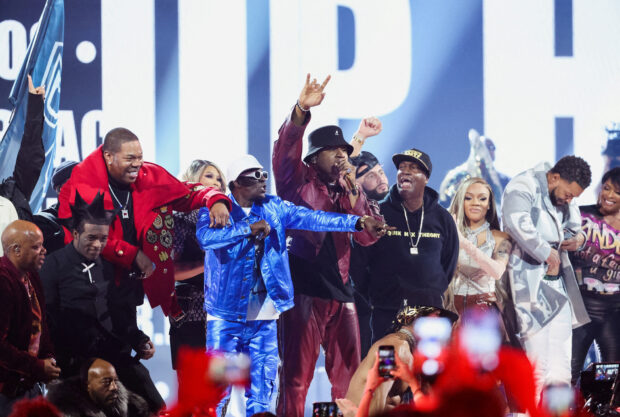
Hip Hop 50 performance during the 65th Annual Grammy Awards in Los Angeles, California, USA, Feb. 5, 2023. Image: Reuters/Mario Anzuoni
“Only human creators are eligible” for the Grammy Awards, the Recording Academy declared on Friday, June 16, as the body that grants the world’s most recognized music awards seeks to curb the use of artificial intelligence (AI) in the industry.
AI-only work is banned, but some music created with AI help may qualify in certain categories, the academy’s updated rulebook reads. “A work that contains no human authorship is not eligible in any categories.”
Music creators must now contribute to at least 20% of an album to earn a nomination. In the past, any producer, songwriter, engineer or featured artist on an album could earn a nomination for album of the year, even if the person had a small input.
The first Grammy Awards ceremony took place in 1959, to reward music creators from 1958.
In November 2022 OpenAI launched ChatGPT, a free chatbot backed by Microsoft Corp. that can generate human-like dialogue based on simple inputs. AI apps have mushroomed, allowing users to animate still photos, create avatars in films, and write songs, essays and articles.
People in many professions are growing fearful that AI could displace humans. For example, the Writers Guild of America (WGA) and the Screen Actors Guild (SAG-AFTRA) are wrestling with the use of AI in the creative fields of screenwriting and acting.
The WGA wants to curb the of AI in screenwriting, while SAG actors want to ensure its members can control use of their digital personas and receive proper compensation.
WGA writers went on strike in early May and have yet to agree with studios on the use of AI, among other issues.
Actors could go on strike as well if SAG-AFTRA cannot reach a deal over similar concerns. AP/ra


